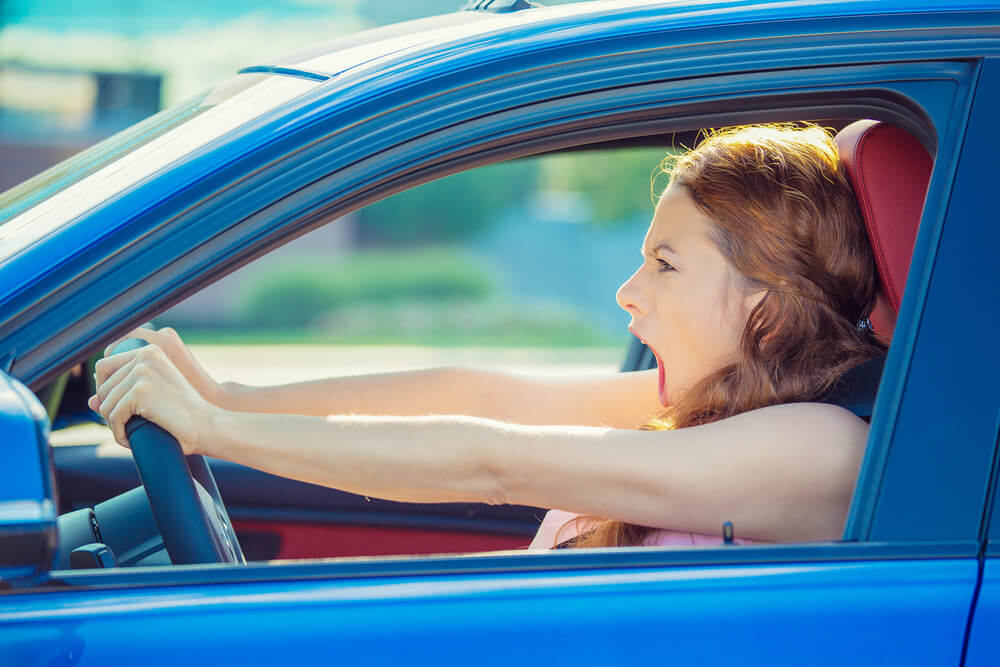Today is the day of the big meeting. You’re out the door and in your car, and you’re confident that the day is going to go as smoothly as it always does. You set your coffee into the drink holder in the center console, set your items on the passenger seat, buckle your seatbelt, and plug the key into the ignition. The engine turns over, as expected. You turn your head, and don’t see any oncoming vehicles, and pull out of the driveway onto the street. Your phone goes off. You look at the screen for a moment, and then pick up the phone to open your messaging app. You continue to pull out the car into the street, and… Boom! An oncoming vehicle hits the back of your car. What do you do when you’ve been in an accident? There are a few steps that you must immediately take in any given scenario, to maintain a transparent process for the both of you. You must both take these steps regardless of who
Step 1 - Stop and Assess
Ensure that yourself and all passengers in your vehicle are safe and uninjured. Look at the situation. Is your vehicle damaged? Did the accident occur in traffic? Be sure to get out of the vehicle if it is smoking, or you can see fluids leaking out of it. Make sure that it is safe to remain in the vehicle if that is what you intend to do, or if it would be safer to exit the vehicle and wait for assistance somewhere else. Another element of assessing the situation is assessing the state of the other party and their vehicle. Are they injured, and do they need help? Is their vehicle leaking fluids or smoking? Taking a moment to evaluate the safety of others can be vital to your own safety as well. Take care to ensure that your cars are parked in an area that is not blocking the flow of traffic and turn on your hazards to ensure that all oncoming cars can see the potential obstruction on the road.
Step 2 - Call Authorities and Take Photos
After evaluating the safety of yourself, your vehicles, and the space in which the vehicles are parked, it is time to call the police, and potentially, an ambulance. This is generally advisable for everyone and is especially advisable if you are in a state that requires you to file an accident report. This is also the time to take some photos of your vehicle, as well as the other vehicle(s) involved in the accident. Make sure you include all angles of the damage inflicted and take close-up photos as well. If you are in a calm state of mind and can communicate effectively, this can be an excellent time to execute the next step while you are waiting for authorities to arrive.
Step 3 - Exchange Information
It is especially advisable to keep a courteous demeanor during the exchange because it is required by law that both parties exchange information after an accident. This information includes the name, address, phone number, and insurance information of the other driver(s) as well as the makes, models, and license plates of all vehicles involved. It is wise to take a photo of their driver’s license to verify this information and keep it on hand for future reference.
Step 4 - The Aftermath
Now that everything has been said and done, it’s time to take some of your earlier assessments and apply that knowledge here. Is the vehicle operable? Can it be driven away, or will you need to call a tow company? It is advisable to have these ideas thought of in advance to avoid too much confusion in the immediate aftermath, but the actions taken vary based on the severity of the accident that occurred. Going to see your physician is advisable even if you do not feel you are injured after an accident. A collision can cause damage to the bones and internal tissues that must be evaluated by a physician. Taking your vehicle to the mechanic to get repaired is another aspect of an accident that may need to be addressed, as well as filing a police report, according to your state of residences’ laws in the United States. Be sure not to delete any photos you took of the accident and keep them saved for several years after the accident to avoid any potential entanglement or confusion.
Being in a car accident is generally a very stressful situation, and it is advisable to avoid yourself from additional stress by not overreacting to it. Whether or not you react strongly to the accident emotionally does not change the steps that need to be executed to ensure your own safety and clarity of communication after an incident occurs.

